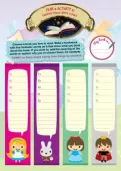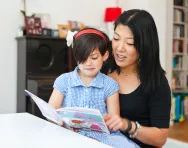Important update from TheSchoolRun
For the past 13 years, TheSchoolRun has been run by a small team of mums working from home, dedicated to providing quality educational resources to primary school parents. Unfortunately, rising supplier costs and falling revenue have made it impossible for us to continue operating, and we’ve had to make the difficult decision to close. The good news: We’ve arranged for another educational provider to take over many of our resources. These will be hosted on a new portal, where the content will be updated and expanded to support your child’s learning.
What this means for subscribers:
- Your subscription is still active, and for now, you can keep using the website as normal — just log in with your usual details to access all our articles and resources*.
- In a few months, all resources will move to the new portal. You’ll continue to have access there until your subscription ends. We’ll send you full details nearer the time.
- As a thank you for your support, we’ll also be sending you 16 primary school eBooks (worth £108.84) to download and keep.
A few changes to be aware of:
- The Learning Journey weekly email has ended, but your child’s plan will still be updated on your dashboard each Monday. Just log in to see the recommended worksheets.
- The 11+ weekly emails have now ended. We sent you all the remaining emails in the series at the end of March — please check your inbox (and spam folder) if you haven’t seen them. You can also follow the full programme here: 11+ Learning Journey.
If you have any questions, please contact us at [email protected]. Thank you for being part of our journey it’s been a privilege to support your family’s learning.
*If you need to reset your password, it will still work as usual. Please check your spam folder if the reset email doesn’t appear in your inbox.
Book-bored to bookworm: expert tips to get your child reading

Why is my child reluctant to read?
Is your child ready to read fluently?
“I believe that there are a number of different reasons why we see such a diverse range of reading skills, but the most obvious one is simply whether the child is developmentally ready to read,” says Early Years lecturer and language expert Rhisiart Tal-e-bot. “This is partly why boys generally seem to be more reluctant than girls to take up reading, because more often than not they are slower to reach that developmental stage in their lives.” Don’t rush your child and let them move at their own pace, consulting with your child’s teacher about how you can support their reading development at home.
My seven-year-old just doesn’t enjoy reading. Can I change her attitude?
Pick up a book yourself! “In order to engage children from an early age in reading, it is crucial that they are familiar with the activity and are used to seeing reading material around them,” says Rhisiart. “It is also vital for children to be used to seeing positive role models in their daily lives reading; parents reading books and newspapers, for instance.


Claim A FREE Book Reviews Activity Pack!
- A huge collection of reading comprehension & creative writing resources
- Explore texts, deepen understanding, share opinions
- For Year 1 to Year 6
Children should have age-appropriate stories read to them – the experience needs to be great fun and utterly fulfilling. Children need to realise reading is a rewarding and enjoyable experience that enhances their lives; without the motivation to read, children will inevitably be unwilling to take it up.”
My daughter loves reading; my son won’t pick up a book.
Some say the boy/girl gap in reading abilities is hard-wired and biological, while others argue there are societal influences at play. Rhisiart believes the causes of this oft-seen reading reluctance from boys include our own cultural prejudices, which may involve us encouraging boys to engage in more ‘practical’ physical activities. “Unfortunately, in our society, it’s rare for fathers to say to sons, ‘Let’s go and read together’, or for boys to see their male role models reading at length for pure enjoyment. We all must stand back and question what our children observe and digest in our homes.”
How can I help my child engage with books?
Educationalists tend to agree that it’s all to do with finding what makes them tick – letting them read about what they are interested in. “People have a terribly snobbish attitude to reading, where if we are not reading so-called ‘literature’ then the activity is not valid somehow,” explains Rhisiart. “Children need to be positively encouraged through praise whenever making an effort to read, even if this is just a matter of ‘reading’ pictures. In addition, children should be allowed to read at their own pace and not be pressurised.”
Encourage an interest in reading outside of school as well as in class by creating a reading-friendly home, and combine literacy and handwriting practice with our 9 fab ideas for fun activities to do at home.








